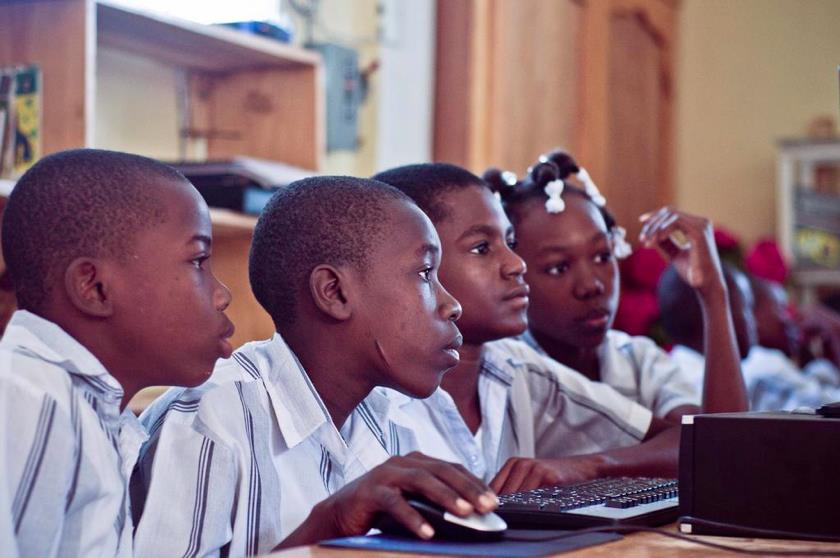*By Michael Geisen, United States 2008 Best Teacher of the Year
Belize is a country rich with natural beauty: reefs, beaches, mangroves, savannahs, forests, and the remains of a great Mayan civilization with a population that was once much larger than the population now. All of these wonderful resources are being used in myriad ways to enrich the lives of Belizeans today, and to develop this small Central American country in the midst of a rapidly changing world. But the most beautiful and valuable resource I found during my week in Belize was unquestionably its children.
A team of professionals from the IDB, the Belize Ministry of Education, and local teacher’s groups traveled to the major districts of Belize over the course of a week in November. Our aim with this education “roadshow” was to celebrate the teaching profession, recruit young people into the teaching field, and to introduce the basic tenets of the IDB-financed Education Quality Improvement Programme (EQIP). Turnout in each of the five districts met or exceeded our expectations (although every night at the starting time of 6pm we were unsure if anyone was coming; “Belizean time” is a real phenomenon!) Teachers, students and parents came to each meeting, along with a handful of dignitaries, community members and the press. Engagement varied a great deal by locality, audience group, and presentation.
On the final evening after my presentation, I stepped outside of the auditorium in Orange Walk Town to breathe some fresh night air and watch some local children play on the steps. A young boy, probably around 8 or 9 years old, was pantomiming to three younger children trying to get them to guess what he was. He finally gave them some verbal clues: “I’m the opposite of a student!” he insisted, exasperated. “Look, I’m writing on the board and passing out papers! The opposite of a student!” His young playmates finally guessed correctly, “Oh, of course, you’re a teacher!”
Unfortunately for students, this may be the reality they face in their classrooms every day. Teachers “chalk and talk,” lecturing to their students who sit in neat rows and attempt to learn from outdated and often ineffective teaching methods and materials. But teachers should be consummate students, not the opposites of students. Teachers should be constantly learning new techniques – based on research and neuroscience – that make learning more effective, engaging and fun for their students. The pedagogical tool belt of a master teacher should include not only lecture, textbooks and problem sets (and these in limited amounts!), but also cooperative learning, inquiry labs, technology, project-based learning, interactive games/simulations, theater, music, art, storytelling, place-based education, and so on. A single pedagogical approach will not work for all students (or all concepts), so we must approach each learning target from many angles if we want all students to be successful.
Most of these pedagogical strategies require few (if any) resources, but they do require training, creativity and continual feedback. Unless Belize is able to recruit, train and retain a more qualified and creative teaching force, its children will be sitting in the classrooms of the past, trying to learn in ways that aren’t compatible with the human brain. And as we are seeing in the high dropout rates throughout Belize, not only are most students struggling to learn, but they’re also struggling to see the relevance of an antiquated education in a world that is rapidly changing.
In my presentation, I focused on the idea that teachers are artists. We work not in oils, clay or watercolors; our media are our students. And students are a truly “social media.” Not only do they talk a lot (which highlights the need to practice cooperative learning techniques!), but also they are social in the sense that they make up the very fabric of our society. They bring beauty, color and imagination to all our lives.
While most artists hope to enrich people’s lives through their artistic works, teachers hope to change people’s lives. We work with the most important media imaginable. Our works of art don’t hang on gallery walls. They walk amongst us.
Society’s greatest assets are our children; therefore our greatest investment of energy ought to be in them. In our youth we not only have the greatest potential, the greatest imagination, and the greatest hope for our future, we also have the most profound beauty now.



Nice one you shared a very informative post. You shared a very true post that “Quality education is possible for every child “